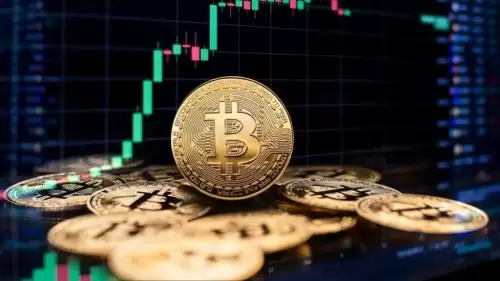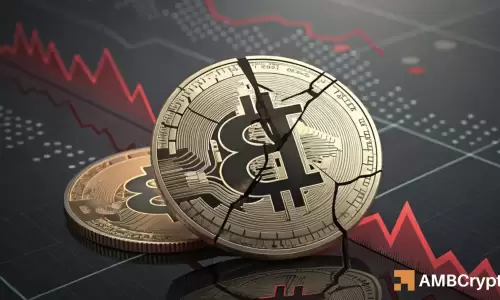 |
|
 |
|
 |
|
 |
|
 |
|
 |
|
 |
|
 |
|
 |
|
 |
|
 |
|
 |
|
 |
|
 |
|
 |
|

A technical decision by Bitcoin Core developers is stirring up the community, as it marks a change in the protocol’s core. For a long time, a limit of 80 bytes on the OP_RETURN field has prevented users from storing too much data in transactions, an action that was meant to remain light and discreet. However, today this symbolic barrier is seen as pointless and might even have had counterproductive effects.
This technical adjustment is heating up community discussions as it undermines the role of a few technical teams in making decisions that do not necessarily align with the collective interest.
A Rule That Has Become Counterproductive
OP_RETURN allows including data in a transaction without generating an UTXO. Introduced to avoid polluting scripts, it was a compromise: limited freedom for maximum security. The 80-byte limit aimed to deter large-scale content storage.
However, users quickly found ways to circumvent this rule. Some inserted their data via fake multisig scripts or used fake addresses, ultimately generating even more pollution.
Moreover, some miners disregarded this limit, rendering its application inconsistent.
As Greg Sanders, a Bitcoin Core developer, pointed out in the PR 32359 proposal on GitHub, "people are going to inscribe data regardless, and if they are limited to 80 bytes of OP_RETURN, they will use even worse and more opaque techniques to do so."
Thus, removing this limit appears to be a pragmatic choice, especially since the developers' philosophy is minimal interventionist:
"The fee market should decide what kinds of transactions get included in blocks and what uses of the Bitcoin protocol are valuable enough to pay for. We prefer to leave as much as possible to the market forces and not create new, technical limits on the protocol."
Of course, this does not mean that there will be no protection against abuse. But it will be targeted and adapted to real threats, in accordance with the project's direction: to avoid abuses while streamlining the protocol.
This change is therefore neither a revolution nor an abandonment of principles. It is a technical realignment with the network's actual practice.
Voices Rise Against the Change
This decision does not come without protest. For many users, this change was not discussed sufficiently and imposes technical choices without collective consent.
As Marty Bent, a prominent figure in the community, points out on X, "It’s clear that there is no consensus today on the OP_RETURN question."
On his side, Samson Mow calls for caution and invites those who disagree with this decision to remain on version 29.0 of Bitcoin Core or use another client like BitcoinKnots.
Indeed, the heart of the problem is this: who changes Bitcoin and how? Some denounce a gradual shift towards centralized governance, dominated by a few technical teams. The PR 32359 proposal, though discussed on GitHub, lacked community consultation.
This disagreement shows how fragile protocol governance remains. Users are not all ready to follow imposed changes, even when they seem logical.
What It Really Changes
Behind this technical quarrel, there are concrete implications for the network:
This change is a technical adjustment to the protocol, aiming to streamline it and leave more room for innovation. It also minimizes the intervention of Bitcoin Core developers in the types of transactions that miners select for inclusion in blocks.
The 80-byte limit on the OP_RETURN script was introduced in 2012 with the goal of preventing users from storing large amounts of data in transactions, an action that was meant to remain light and discreet. However, over time, this limit began to be seen as pointless and might even have had counterproductive effects.
As usage patterns evolved, the 80-byte limit began to be circumvented in various ways. For instance, some users began to insert their data via fake multisig scripts or used fake addresses, ultimately generating even more pollution.
Moreover, some miners ignored this limit, rendering its application inconsistent.
This technical decision might be minimal, but it is nonetheless part of a broader shift in the Bitcoin ecosystem.
免責聲明:info@kdj.com
所提供的資訊並非交易建議。 kDJ.com對任何基於本文提供的資訊進行的投資不承擔任何責任。加密貨幣波動性較大,建議您充分研究後謹慎投資!
如果您認為本網站使用的內容侵犯了您的版權,請立即聯絡我們(info@kdj.com),我們將及時刪除。
-

-

-

-

-

-

- UNISWAP價格預測:看漲逆轉在地平線上?
- 2025-08-05 07:10:59
- UNISWAP(UNI)是否準備好看好逆轉?最近的市場分析表明潛在的上升性,但是哪些因素驅動了這種樂觀的前景?
-

- 比特幣,以太坊,Altcoin Rally:這是最大的嗎?
- 2025-08-05 07:01:56
- 加密貨幣市場正在加熱,以太坊領導了這一指控。這是主要的Altcoin集會的開始嗎?讓我們研究最新的趨勢和見解。
-

-

- 比特幣持有人準備在看跌信號的市場出口
- 2025-08-05 07:00:39
- 長期比特幣持有者顯示出市場退出的跡象,作為關鍵指標閃光燈信號,表明儘管價格提高,但仍有可能進行更正。





























































